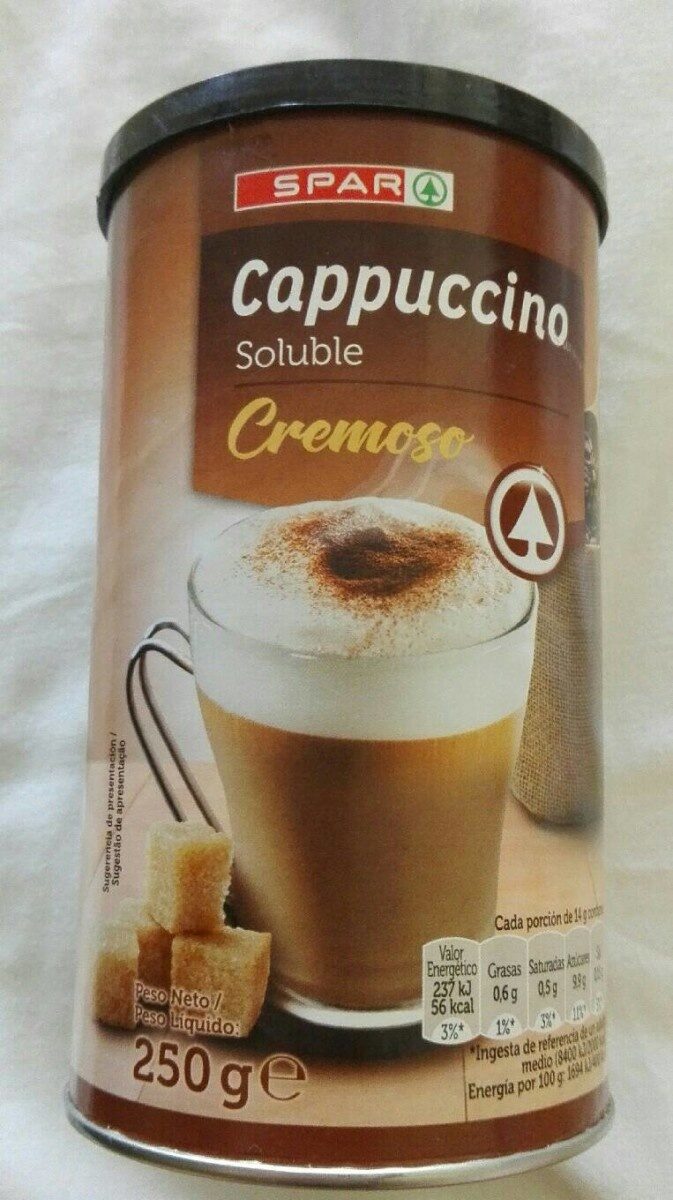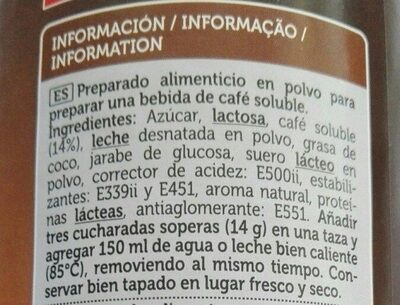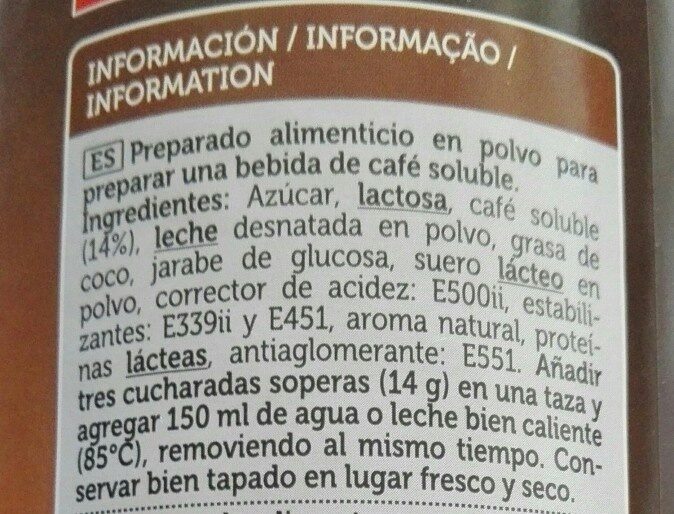Spar - 250 g
This product page is not complete. You can help to complete it by editing it and adding more data from the photos we have, or by taking more photos using the app for Android or iPhone/iPad. Thank you!
×
Barcode: 8480013131236 (EAN / EAN-13)
Quantity: 250 g
Brands: Spar
Categories: Plant-based foods and beverages, Beverages, Plant-based foods, Coffees, Instant beverages, Instant coffees, Powdered cappucino
Stores: Spar
Matching with your preferences
Environment
Carbon footprint
Packaging
Transportation
Report a problem
Data sources
Product added on by kiliweb
Last edit of product page on by gmlaa.
Product page also edited by elcoco, musarana, openfoodfacts-contributors, teolemon, yuka.Jq4SGMevP88nJPHqiokw-GeXD827MeFTNyNWog, yuka.ZEo4a1Q2TXJvdnNMc3NZSDNUemI0UDV3dzRTVlpsbnFkUEFXSVE9PQ.
If the data is incomplete or incorrect, you can complete or correct it by editing this page.






